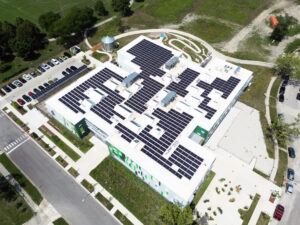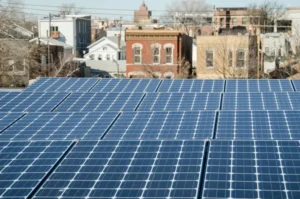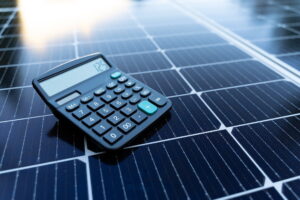Residential and commercial property owners in Chicago are increasingly looking to lower their electric bills while contributing to a sustainable future. This article explains the key factors affecting solar cost savings in Chicago, how to calculate your solar ROI, government incentives, financing options, the installation process, and expert tips for choosing a local solar company. Let’s dive into the core aspects that directly influence your solar savings.
What Are the Key Factors Affecting Solar Cost Savings in Chicago?
Solar savings in Chicago depend on several interrelated factors. Local climate conditions influence solar irradiance, with Chicago’s snowy winters and sunny summers affecting panel efficiency. Utility rates and programs—especially from ComEd—can enhance savings through net metering and time-of-use adjustments. Additionally, property factors such as roof orientation, shading, and available installation space directly impact performance and payback.
How Does Chicago’s Climate Impact Solar Energy Production?
Overcast days, snowfall, and temperature fluctuations change the distribution of solar irradiance, potentially lowering energy yields. However, optimal panel positioning and advanced technologies can maintain steady performance even during less favorable weather.
What Role Do Local Utility Rates and ComEd Programs Play?
Higher utility rates increase savings per kilowatt-hour by maximizing the value of solar production. Incentive programs like net metering allow homeowners to earn credits on excess energy, reducing overall electric bills and shortening the payback period.
How Do Property Characteristics Influence Solar Savings?
A south- or west-facing roof with minimal shading maximizes solar capture, while older roofs or obstructions may require extra renovation costs. Assessing property characteristics is essential for estimating overall savings and determining the best system configuration.
How Can You Calculate Your Solar Return on Investment (ROI) in Chicago?
Calculating solar ROI involves combining installation costs, available incentives, estimated energy output, and long-term savings. Factors include initial expenditure, tax credits, maintenance costs, and estimated production based on local solar irradiance. This calculation determines both the payback period and the overall financial benefits over the system’s lifespan.
What Is the Typical Payback Period for Solar Panels in Chicago?
In Chicago, solar panel payback typically ranges from 7 to 10 years. Once the initial investment is recouped, the remaining system lifespan—often beyond 25 years—delivers substantial savings on electric bills.
How to Use a Solar Cost Savings Calculator Effectively?
A solar cost savings calculator requires accurate inputs for energy consumption, utility rates, installation costs, local climate data, and property specifics. The resulting projection helps adjust system size or financing methods to optimize returns.
What Are the Long-Term Financial Benefits of Solar Energy?
Beyond monthly bill reductions, solar energy can raise property values, stabilize energy costs, and protect against future rate hikes. Once the payback period is achieved, nearly all energy produced offers direct savings, making solar a sound long-term investment.
Which Government Incentives and Rebates Can Maximize Your Solar Savings in Illinois?
Government incentives significantly lower upfront costs. Federal tax credits, state rebates, and local utility incentives combine to improve project feasibility and overall savings, making solar power an attractive investment for Illinois residents.
What Federal Tax Credits Are Available for Chicago Solar Installations?
The Federal Investment Tax Credit (ITC) currently offers a 30% deduction on eligible installation costs, reducing the capital required and accelerating financial returns through lower electric bills.
How Do Illinois State Rebates and Local Programs Work?
Illinois provides state-specific rebates, grants, and low-interest financing options such as PACE. These programs, often paired with utility-specific offers, help further reduce the net cost of a solar system.
How to Combine Incentives for Maximum Savings?
By coordinating federal, state, and local incentives—often with the help of professional installers—homeowners can minimize upfront costs and shorten the payback period, increasing overall returns.
What Financing Options Are Available for Solar Panels in Chicago?
Financing is critical to managing initial costs. Options include outright purchase, loans, leases, or power purchase agreements (PPAs); each option affects cash flow and overall savings differently based on personal financial circumstances.
How Do Solar Loans and Leases Affect Your Cost Savings?
Solar loans provide system ownership, allowing homeowners to benefit fully from tax credits and eventual elimination of payments post-loan. Leases require little upfront cost but may offer lower long-term savings due to ongoing lease payments.
What Are the Benefits of Solar Power Purchase Agreements (PPAs)?
A PPA allows customers to pay a fixed rate for the solar power produced by a system owned and maintained by a third party, offering immediate bill reductions without significant upfront investment.
How to Choose the Best Financing Option for Your Budget?
Consider your cash flow, credit score, and long-term savings goals. Compare total cost scenarios for purchase, loan, lease, or PPA options and consult with a solar expert to determine the most efficient route.
How Does the Solar Panel Installation Process Affect Your Overall Savings?
A smooth installation process maximizes system performance and ROI. Efficient site assessments, prompt permitting, and adherence to building codes are crucial for effective installation and avoiding cost overruns.
What Are the Steps for Solar Panel Installation in Chicago?
Installation involves a site assessment, system design, permitting, installation, inspection, and grid interconnection. Experts evaluate roof space, shading, and structural integrity, ensuring panels are optimally positioned and securely mounted.
How Do Permitting and Building Codes Impact Installation Costs?
Compliance with local codes may generate additional fees and modifications but is essential for safe, long-lasting systems. Professional installers incorporate these costs into the overall budget to ensure system performance.
What Maintenance Is Required to Sustain Solar Savings?
Regular maintenance such as cleaning, periodic inspections, and system monitoring is necessary to preserve panel efficiency and long-term savings. Low annual costs are typically required to maintain optimal performance.
How to Choose the Best Solar Company in Chicago for Accurate Cost Estimates?
Selecting a reputable solar installer is key. Local companies understand Chicago’s climate, permitting, and market conditions, ensuring precise cost estimates and high-quality installations.
What Questions Should You Ask Your Solar Installer?
Ask about previous installations, warranty coverage, maintenance plans, financing options, and local permitting experience. Clear information on energy production and expected savings is vital.
How to Compare Solar Company Reviews and Ratings in Chicago?
Review ratings on platforms like the Better Business Bureau and Google Reviews. Consistent feedback on timeliness, budget adherence, and post-installation service can indicate a reliable installer.
Why Is Local Expertise Important for Maximizing Savings?
Local expertise ensures compliance with Chicago’s building codes and utility programs, which helps optimize solar system design, reduce delays, and ultimately improve ROI.
What Are the Environmental and Financial Benefits of Solar Energy in Chicago?
Solar energy significantly reduces electric bills and lowers carbon emissions, lessening dependence on fossil fuels. These benefits also include increased property values and long-term economic protection against rising energy costs.
How Does Solar Energy Reduce Your Carbon Footprint?
By replacing fossil fuel-based electricity, solar panels directly reduce greenhouse gas emissions. This cleaner energy option supports sustainability goals and broader environmental targets in Illinois.
What Are the Long-Term Savings Beyond Energy Bills?
Owners can enjoy increased property values, reduced maintenance costs, and greater protection from fluctuating utility rates over decades. Continuous monitoring may further optimize energy output and savings.
How Does Solar Adoption Impact Chicago’s Energy Market?
Widespread solar adoption promotes decentralized power generation, strengthens grid resilience, and fosters energy independence. This shift benefits both consumers and the local economy.
Table: Key Factors Impacting Solar Cost Savings
Before diving into the final thoughts, consider the following table summarizing critical factors for estimating your solar ROI in Chicago:
| Factor | Impact on Savings | Example/Value |
| Solar Irradiance | Determines energy production | Varies by season in Chicago |
| Local Utility Rates | Higher rates yield more savings | ComEd programs lower bills |
| Property Characteristics | Affect solar capture efficiency | South-facing roof maximizes gain |
| Government Incentives | Lower upfront costs | 30% Federal ITC |
| Financing Options | Influence cash flow and overall ROI | Options: Loan, lease, PPA |
Summary: This table illustrates how different elements combine to determine your solar savings, helping clarify overall financial benefits.
Frequently Asked Questions
Q: How long do solar panels typically last in Chicago?
A: Most solar panels last over 25 years, with a gradual efficiency drop of about 0.5% per year.
Q: Can I benefit from solar energy even on cloudy days in Chicago?
A: Yes, modern panels capture diffuse sunlight to generate energy even without direct sunlight.
Q: What credit can I expect from the Federal ITC?
A: The Federal Investment Tax Credit offers a 30% deduction on qualifying solar system costs.
Q: How does net metering work in Chicago?
A: Net metering credits homeowners for excess energy production, which offsets overall electric bills.
Q: Is professional installation necessary for maximum savings?
A: Absolutely—professional installers ensure correct positioning, code compliance, and optimal integration with available incentives.
Final Thoughts
Solar energy in Chicago offers a proven way to lower your electric bill while supporting environmental sustainability. Understanding local climate impacts, utility rates, and government incentives is key to calculating your solar ROI. With thoughtful financing and expert installation, your investment can deliver significant long-term savings and stabilization against energy rate hikes. For more information on maximizing your solar savings, call (312) 588-6953 or visit the Windfree Solar contact page.




